
Taittinger Champagne
A Great Champagne House, which has quickly established itself as one of the most prestigious in the region, Taittinger is founded upon exceptional cuvees from the greatest terroirs of Champagne.The...Read More

In stock. Available for pick-up at store

In stock. Available for pick-up at store

In stock. Available for pick-up at store
Taittinger : Making Champagne a Lifestyle
Pierre Taittinger first discovered the Champagne region as a young liaison officer during the First World War. In 1915, he was assigned to the chief of staff of General de Castelnau and was based at Chateau de la Marquetterie, located in the heart of Champagne. It was thanks to his passion for wine and gastronomy that he returned several years later and, with his brother-in-law, Paul Eveque, purchased that same chateau he fell in love with.
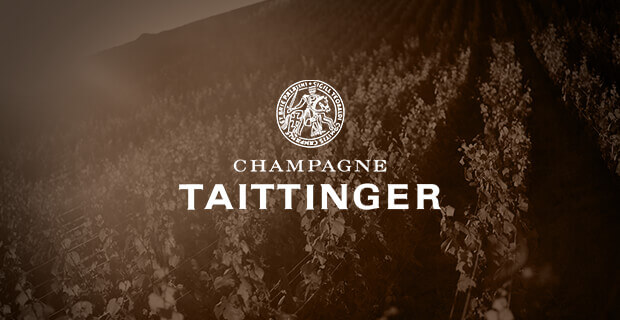
The Taittinger Legacy
Pierre was actively involved in politics until 1940, relying on his sons - François, Jean and Claude – and Paul Eveque to run the business. In 1945, under the management of François, the Champagne house changed its production labels to carry the Taittinger family name on all of the bottles. Although it was considered a bold decision at the time, François saw this as an opportunity to anchor the influential Champagne Taittinger house, while international competition was rising.
In 1960, François suddenly passed away in a car accident, leaving Claude in charge of the company. With big shoes to fill, Claude took this position by storm, and left a strong influence on the brand. A globe-trotter at heart, he traveled the world and positioned the brand in a world of elegance, art and prestige. Claude also expanded the estate, planting an additional 346 acres of vines. By 2006, he managed over 700 acres of estate-owned vineyards, and a key business in the Champagne region.
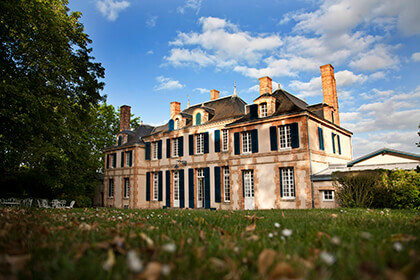
Since its founding in 1932, Taittinger has grown, and truly found its place among the great French champagne houses, imposing a unique and innovative style, and bringing a new point of view to Champagne. Nowadays, the famous Champagne house is run by Pierre-Emmanuel Taittinger, together with his son Clovis, and daughter Vitalie.
The Taittinger Wines Terroir
Taittinger is the third largest vineyard owner in the Champagne region with nearly 40 vineyard plots consisting of 48% Pinot Noir, 37% Chardonnay, and 15% Pinot Meunier vines. The Taittinger estate produces around half of the grapes it needs for production and buys the rest of its grapes from partner vineyards. In their own vineyards, Taittinger looks to sustainable and eco-friendly practices to preserve the land and allow the unique terroir to shine through. The Taittinger House style can be described by trying two of their classic Champagnes: the Comtes de Champagne Vintage Blanc de Blancs and the Prestige Rosé.
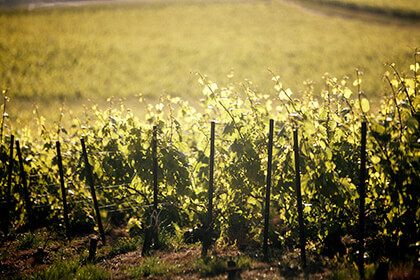
The Comtes de Champagne is created using juice from the first press of exclusively Grand Grus Chardonnay grapes of the Cote de Blancs region. It was created in 1952 and was named in honor of Thibaud IV, the Count of Champagne, whose seal adorns every bottle. This wine is known for small quantity and premium quality, so production is limited to the best years. In fact, only 35 vintages have been produced since their first in 1952. The grapes from each plot are pressed separately in order to retain their unique qualities. Five percent of the juice is aged in new oak barrels for four months to add a delicate toasty character and layers of complexity. The champagne is then aged slowly in the chalk quarries of Saint-Nicaise.
While the Comtes de Champagne is delicate and refined, the Prestige Rosé is vibrant and sophisticated. It is full-bodied and structured, yet smooth, bursting with red fruit. It stands out with its shimmering color and is expressive on the nose. Notes of crushed strawberries, cherries and blackcurrants can be attributed to the Pinot Noir in the blend, while the high proportion of Chardonnay enhances the blend with a crisp, balancing acidity and the elegant finesse for which Taittinger Champagne is known. This Champagne rosé is exciting, with a balance of fresh fruit and acidity – it has all the characteristics of a beautiful rosé blend.
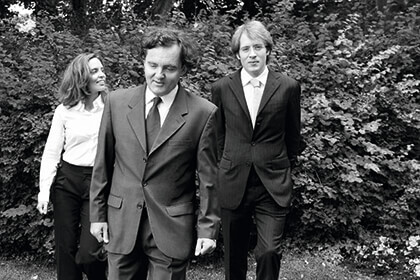
Taittinger Wines: Where Champagne Meets Art and Cuisine
Much like his father, Claude’s passion for wine and gastronomy shone bright while promoting the family Champagne house. In his father’s honor, Claude created the Pierre Taittinger International Culinary Award in 1967, which became known as Le Taittinger in 2007. This award celebrates the art of French cuisine, known for combining a respect for traditional techniques with a certain level of creativity. For over 50 years, young chefs have battled in this international culinary competition judged by food and wine professionals. The winner receives a great prize and recognition in their community.
In 1983, Claude also spearheaded the Taittinger Collection project, which aims to turn the Champagne bottle into a work of art. With support from some of the greatest names in contemporary art, the Taittinger bottle becomes both the canvas and inspiration for international artists. In the exclusive Taittinger Collection, each of the best Grands Crus vintages come in a one-of-a-kind bottle, designed in a way to celebrate both the artist and the bubbly inside.
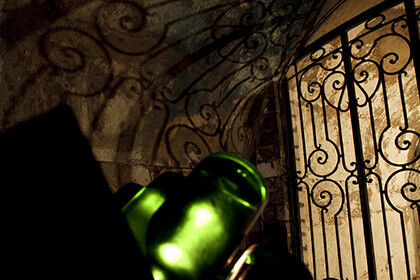
Victor Vasarely was the first artist to create a magnificent bottle for the 1978 vintage. This harvest was significant, as it was one of the smallest that the Champagne region had ever experienced in the post-war period. Picking had been preceded by hot and dry conditions late in the season, which resulted in a high sugar/potential alcohol content in the black grapes and a superb quality of yield. Vasarely chose to illustrate the vintage with his signature “kinetic art” style: a golden coating to echo the color of the champagne inside, and an optical illusion through geometric shapes to evoke the effervescence of the latter. To this date, many great artists have continued to participate in this unique art gallery opportunity.
Taittinger recognizes that the art of ‘thinking outside the box’ is just as important as excellence and finesse in their wines. The prestigious estate continues to be a proud supporter of the finer things in life, including art, gastronomy and, of course, Champagne.